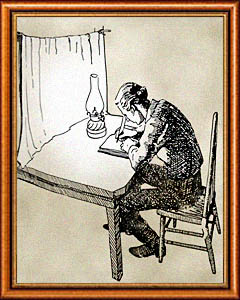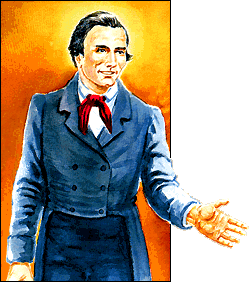Roger wrote:...
Nearly everyone recognizes that a Bible was used for the obvious large chunks that are nearly verbatim. Sandra Tanner makes the case that the same Bible was used in many other places.
Wesley Walters spent quite a hunk of his time studying the use
of the KJV in the Book of Mormon narrative. Other students of
Mormon history, like Mike Marquardt, understand very well the
process whereby biblical language was appropriated into the
Nephite record -- and not just from any Bible, but from the
KJV (and perhaps a few snippets from Alex Campbell's New Testament).
We see these scholars assigning word-strings as short as
three or four words in a row to specific KJV borrowings, shown
by chapter and verse.
The traditional RLDS view has been that the similarity in
language was all due to coincidence. God speaks the same
message to all ages, and is simply coincidence that two
biblical writers make use of "come to pass;" or that two
Book of Mormon prophets make use of "and now behold..."
It is no more strange that the Bible and Nephite record
share such language, than it is odd that those two books
internally share similar language between separate prophets.
I don't buy that apologetic -- but most of my co-religionists
in the Reorganized Church and CoC were convinced by it. Of
course there are also more experienced, better educated
scholars from those groups who recognize massive language
(and doctrinal) dependence of the "Nephites" upon the KJV.
I wonder what Ben and Dan and Glenn would think of her methods and conclusions?
I'm only guessing -- but perhaps they would say that such
examples as those presented by Sandra Tanner lack any real
"significance;" because she did not make use of a scientific,
rigorous and exhaustive methodology, in order to determine
plagiarism. Therefore, it is only Sandra's "guess," and not
anything that the rest of us need take note of.
Of course, in the cases of the Isaiah, Malachi and Matthew
textual correspondence, the match is so perfect and so
extensive, that even Ben and Dan and Glenn would have to
come up with some better reply than that the early Mormon
witnesses saw no Bible in Joe Smith hands, yadda, yadda, yadda.
UD


